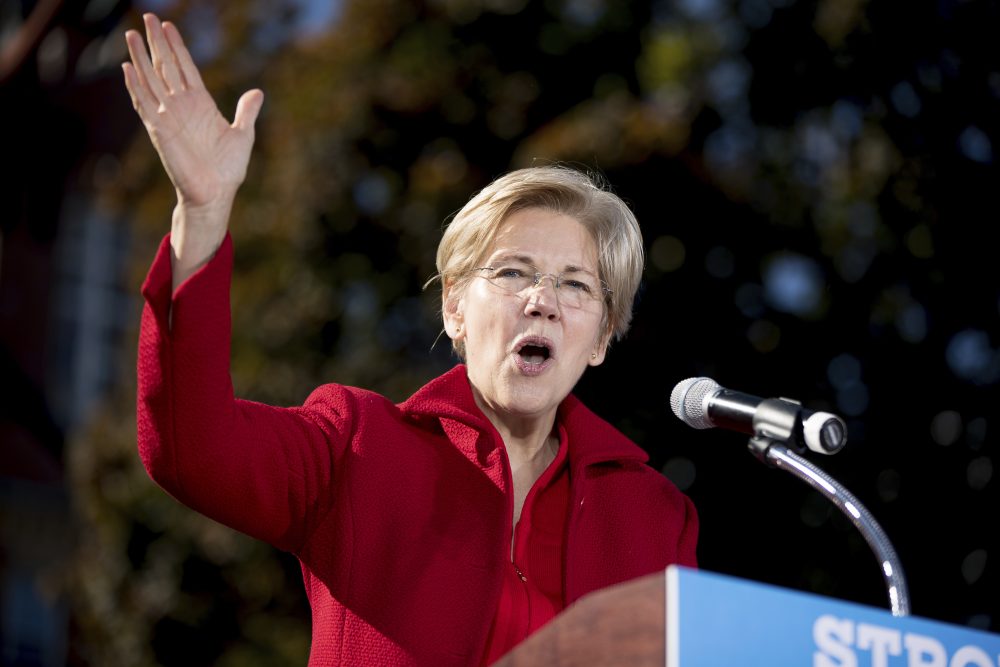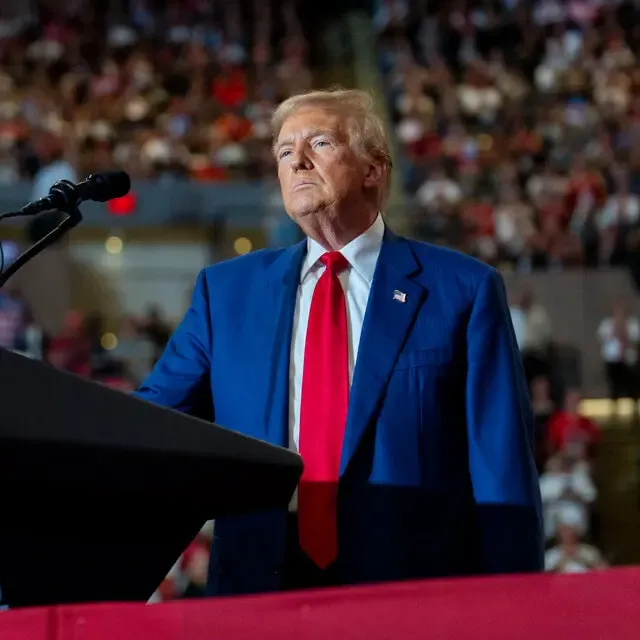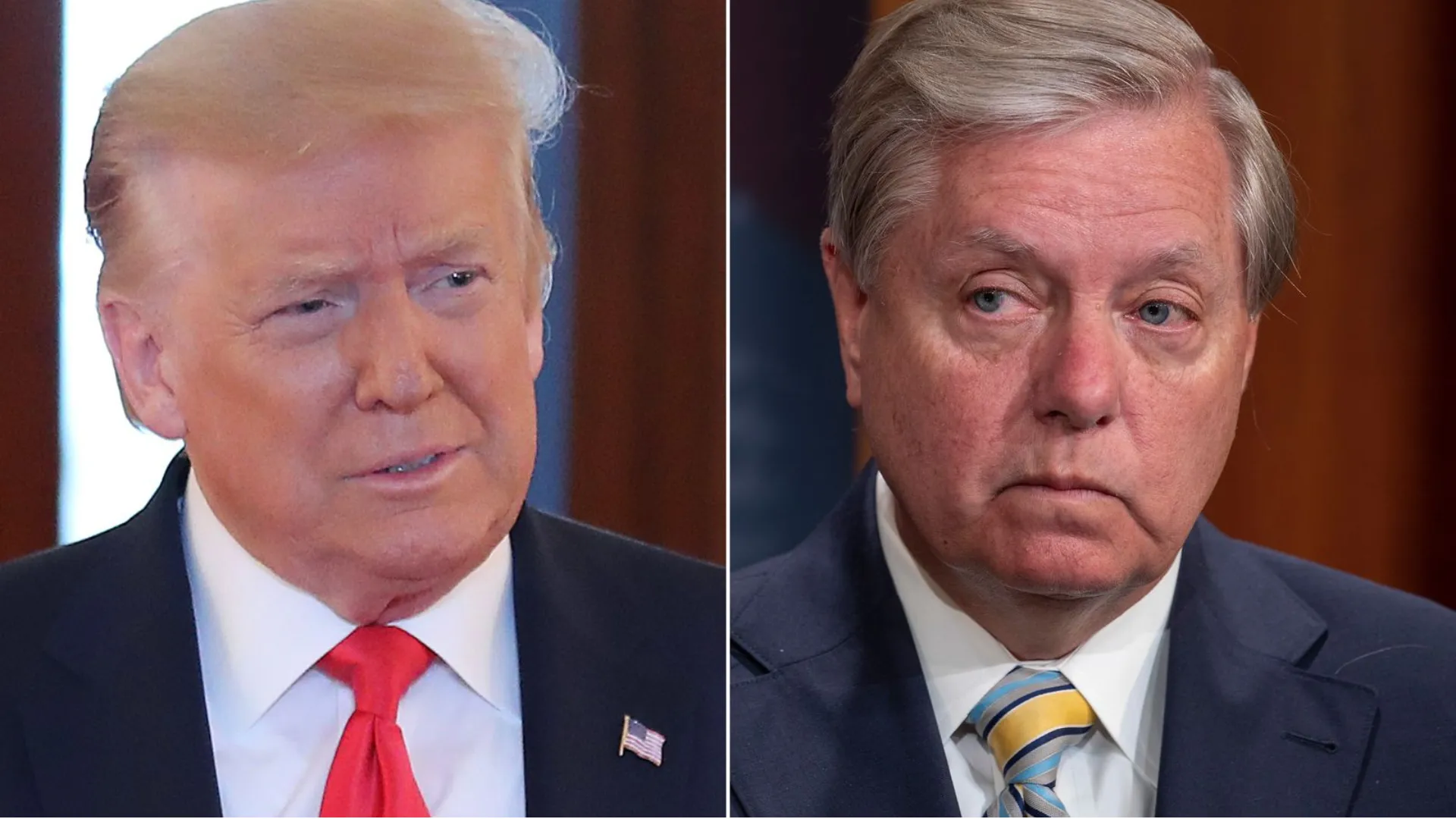
Senator Elizabeth Warren (D-Mass.) has renewed calls for Democrats to directly confront President Donald Trump’s sweeping tariff policies, warning that congressional inaction could enable the administration to further damage the economy while enriching insiders.
In a weekend appearance on ABC’s This Week, Warren said Democrats must lead the charge against what she called a dangerous overreach of executive power—and urged Republicans to join them before it’s too late.
“The courts may step in here, but we don’t have to wait for the courts,” Warren told host George Stephanopoulos. “The question is whether or not the Republicans will join us in this.”
Warren’s comments come amid growing concern over Trump’s controversial tariff regime, which includes a 10 percent blanket tariff on all imports and a steep 145 percent tariff on Chinese-made goods.
Critics argue that the policy—rolled out under an emergency declaration earlier this year—has sent shockwaves through global markets, spurred inflation at home, and put unnecessary strain on working Americans. Now, with Congress considering a resolution to revoke Trump’s emergency powers and reverse the tariffs, a major legislative showdown looms in Washington.
President Trump declared an economic emergency earlier this year, citing threats to national security and economic stability posed by America’s trade imbalance with China and other global trading partners. Under this authority, Trump imposed tariffs that his administration claims are necessary to rebalance trade and protect American manufacturing.
But the move quickly became one of the most controversial acts of his second term. The broad application of tariffs—10 percent across all imports and 145 percent specifically on Chinese goods—has led to significant price hikes for everyday items, ranging from electronics and household goods to food and clothing.
Economists warn that the measures could cost American households an average of $3,800 a year and risk sparking a global trade war.
The financial impact has been swift. Markets have experienced extreme volatility, with sharp swings in major indices and a steep drop in investor confidence.
While the White House initially celebrated the tariffs as a sign of economic nationalism, it later walked back some of the measures by announcing a 90-day pause on certain exclusions. The pause, however, does not apply to Chinese imports, and it has done little to calm fears about the long-term impact of the administration’s policies.
For Warren, the tariff saga is emblematic of a larger problem—namely, that Congress has handed over too much trade authority to the executive branch, and must now reclaim its constitutional role in setting tariff policy.
She has repeatedly emphasized that Article I of the U.S. Constitution grants Congress—not the president—the power to regulate trade and commerce with foreign nations.
In her ABC interview, Warren argued that lawmakers need to assert that authority before the courts intervene.
“There will be a vote in about 15 days, and the Republicans can either decide that their entire job is to do nothing but bow down to Donald Trump, or the Republicans in Congress can say that their job is to stand up for the American people and to stand up for the American economy and roll back what Donald Trump is doing,” she said.
Warren and Senate Minority Leader Chuck Schumer (D-N.Y.) are backing a resolution that would terminate the emergency declaration Trump used to justify the tariffs. If passed, the resolution could force a reversal of the administration’s trade policies—but only if enough Republicans join Democrats in voting for it.
In a separate but related move, Warren and Schumer have called on the Securities and Exchange Commission (SEC) to investigate whether administration officials or close Trump allies profited from insider knowledge of the tariff pause announced last week.
The abrupt policy shift caused significant movements in stock prices, raising concerns that individuals with early access to the decision may have exploited the information for financial gain.
The call for an investigation adds another layer of scrutiny to the administration’s handling of trade policy, raising questions not only about the economic wisdom of the tariffs, but also about the ethical conduct of those involved in crafting them.
“This isn’t just about bad policy—it’s about whether or not government officials are using public office to benefit private interests,” Warren said in a separate statement. “The American people deserve transparency and accountability, especially when it comes to decisions that affect the entire economy.”
While most Republican lawmakers have stayed silent or defended the administration’s actions, some are beginning to voice concerns. Senator Chuck Grassley (R-Iowa), a veteran lawmaker and consistent advocate for free trade, has co-sponsored bipartisan legislation aimed at curbing the president’s authority to impose tariffs without congressional approval.

“I made very clear throughout my public service that I’m a free and fair trader,” Grassley said last week. “The Constitution gives Congress the authority to regulate interstate and foreign commerce. I believe that Congress delegated too much authority to the president in the Trade Expansion Act of 1962 and the Trade Act of 1974.”
Grassley’s remarks point to a growing realization among some conservatives that Trump’s economic populism may be undermining the free-market principles traditionally championed by the GOP. Still, whether that concern translates into action remains to be seen.
Warren, meanwhile, is pressing the issue, urging Democrats to intensify public pressure on Republicans to break with the president. “This is not a partisan issue—it’s a constitutional issue,” she said. “And if Republicans believe in the Constitution as much as they say they do, then now is the time to prove it.”
Warren and her allies have also framed the tariff crisis as part of a broader “triple threat” posed by the Trump administration’s economic agenda. That agenda, they say, combines harmful tariffs, deep staffing cuts to government agencies, and proposals to slash the social safety net in order to finance tax breaks for the wealthy.
“The average American family is getting hit from all sides,” said Senator Sheldon Whitehouse (D-R.I.), who supports the resolution to end the emergency declaration. “First, they’re paying more for basic goods because of these tariffs.
Second, they’re losing access to vital services because of budget cuts. And third, they’re being asked to foot the bill for tax cuts that primarily benefit the richest Americans.”
Independent analysts back up these concerns. A recent report from the Center on Budget and Policy Priorities estimated that Trump’s tariffs could lead to a reduction in real disposable income for low- and middle-income families, while benefiting a narrow band of domestic manufacturers and investors with well-placed assets.
The debate over Trump’s tariffs comes at the same time as renewed Democratic efforts to raise the federal minimum wage. Senator Bernie Sanders (I-Vt.) recently introduced an amendment calling for a phased increase of the minimum wage to $17 per hour.
Though the measure failed in the Senate, it received support from all Democrats and one Republican.
Warren has voiced strong support for the minimum wage push, arguing that it offers a better path to economic security than the administration’s top-down trade measures.
“The best way to help working families is not to play games with global supply chains—it’s to raise wages, protect benefits, and strengthen the institutions that support our economy,” she said.
The juxtaposition between Trump’s tariff-driven nationalism and Warren’s wage-based populism illustrates the stark policy divide now defining American politics. Both sides claim to speak for the working class, but their prescriptions for economic justice are radically different.
At the heart of the fight is a fundamental question: Who should decide America’s trade policy? For decades, Congress has gradually ceded more and more power to the executive branch, giving presidents broad authority to impose tariffs under various pretexts—from national security to economic emergency.
Now, with Trump using that authority in sweeping and unpredictable ways, lawmakers on both sides of the aisle are reconsidering that arrangement.
“There’s a growing bipartisan recognition that Congress made a mistake by delegating so much power,” said Molly Reynolds, a senior fellow at the Brookings Institution. “The real question is whether lawmakers are willing to take that power back.”
With a vote on the resolution to terminate Trump’s emergency declaration expected in the next two weeks, the answer may come sooner than expected.
Senator Elizabeth Warren’s call to action represents more than just a pushback against Trump’s tariffs—it’s a call for Congress to reclaim its constitutional role in shaping economic policy. Whether lawmakers will heed that call remains uncertain, especially as political pressures mount and partisanship deepens.

But the stakes are clear. With inflation rising, markets on edge, and questions swirling about insider trading and executive overreach, the need for legislative oversight has rarely been more urgent.
In Warren’s words, “We don’t have to wait for the courts. We can act now. And the question is—will we?”




